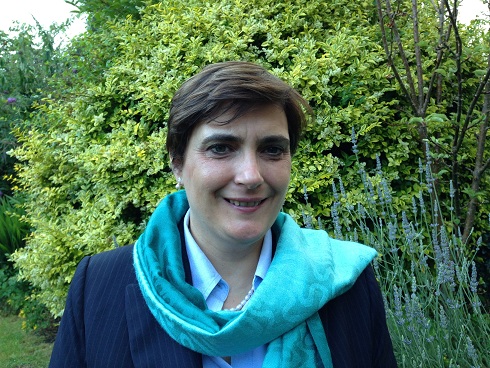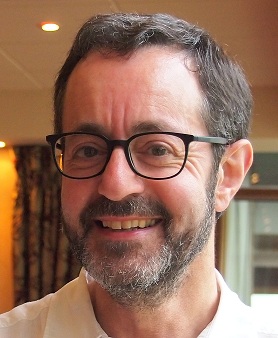Johnians elected Fellows of the British Academy
Two Johnians have been elected to the Fellowship of the British Academy in honour of their outstanding research in the humanities and social sciences: Professor Ingrid De Smet and Professor David Denison.
 Professor Ingrid De Smet came to St John's in 1989 and received her PhD in Modern Languages in 1993. She is currently Professor of French and Neo-Latin Studies at the University of Warwick, and is also First Vice-President (2013-2015) of the International Association for Neo-Latin Studies, and Treasurer of the Society for Neo-Latin Studies. Professor De Smet specialises in the intellectual culture of sixteenth-century and early seventeenth-century France and the Low Countries, with particular interest in the Latin writings of that time. Recent research work focuses on the notion of ‘polemics’, and she is currently working on a new project centring on "Secrets and their Keepers in Renaissance France, ca. 1560-1620" thanks to a three-year Leverhulme Major Research Fellowship award.
Professor Ingrid De Smet came to St John's in 1989 and received her PhD in Modern Languages in 1993. She is currently Professor of French and Neo-Latin Studies at the University of Warwick, and is also First Vice-President (2013-2015) of the International Association for Neo-Latin Studies, and Treasurer of the Society for Neo-Latin Studies. Professor De Smet specialises in the intellectual culture of sixteenth-century and early seventeenth-century France and the Low Countries, with particular interest in the Latin writings of that time. Recent research work focuses on the notion of ‘polemics’, and she is currently working on a new project centring on "Secrets and their Keepers in Renaissance France, ca. 1560-1620" thanks to a three-year Leverhulme Major Research Fellowship award.
 Professor David Denison came to St John's in 1969 and received a BA in Mathematics/Anglo Saxon, Norse and Celtic in 1973. He is currently Smith Professor of English Language and Medieval Literature at the University of Manchester. Professor Denison was a founding editor and is on the editorial board of English Language and Linguistics, which has become one of the leading journals in its field. His research interests lie in recent and current changes in English syntax, the use of possessive –s in English, gradience, and historical syntax and the history of English in general; his book English Historical Syntax concentrates on verbal constructions.
Professor David Denison came to St John's in 1969 and received a BA in Mathematics/Anglo Saxon, Norse and Celtic in 1973. He is currently Smith Professor of English Language and Medieval Literature at the University of Manchester. Professor Denison was a founding editor and is on the editorial board of English Language and Linguistics, which has become one of the leading journals in its field. His research interests lie in recent and current changes in English syntax, the use of possessive –s in English, gradience, and historical syntax and the history of English in general; his book English Historical Syntax concentrates on verbal constructions.
Forty-two outstanding academics were elected to the British Academy Fellowship from nineteen UK universities in respect of their achievements in scholarly research activity and publication. Fifteen Corresponding Fellows from overseas universities and two Honorary Fellows were also elected to the Fellowship, which currently consists of over 900 scholars who have attained academic distinction in their fields.
Lord Stern, President of the British Academy, said, “Together, our Fellows represent an unrivalled reserve of expertise and knowledge. They play a vital role in the work of the Academy, encouraging younger researchers, engaging in public discussion of the great issues and ideas of our and other times, contributing to policy reports and publications, and helping to select researchers and research projects for funding support.”